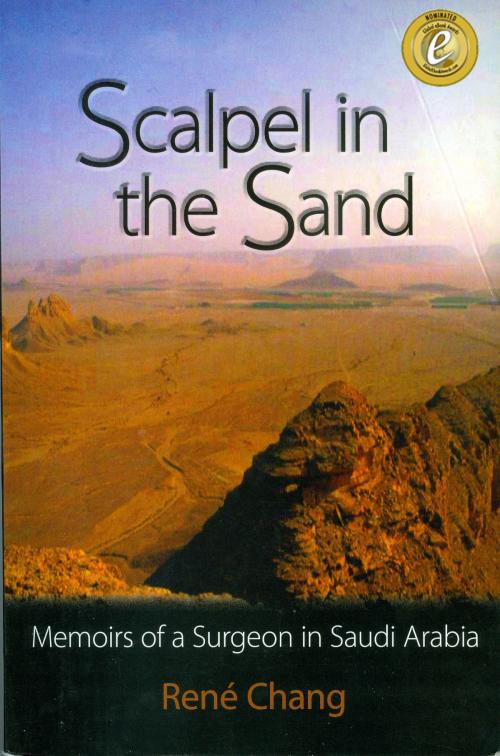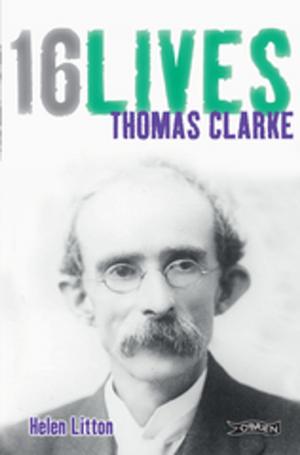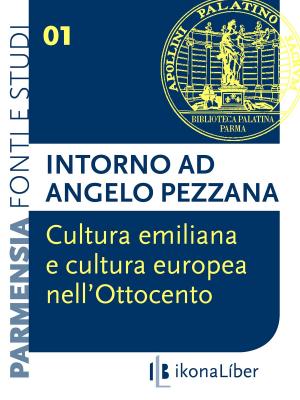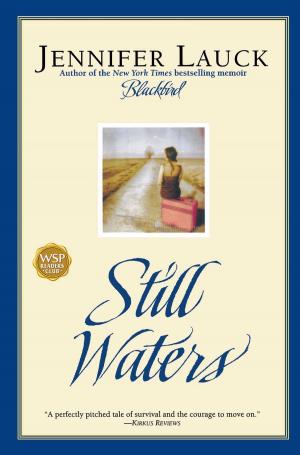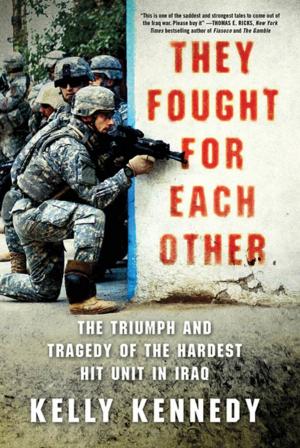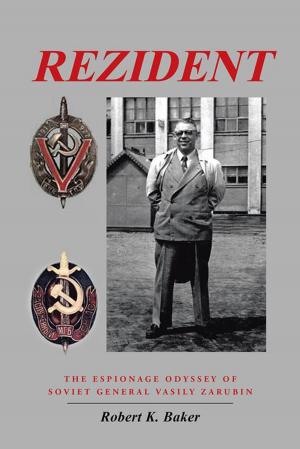| Author: | Rene Chang | ISBN: | 9780956911926 |
| Publisher: | Rene Chang | Publication: | July 10, 2011 |
| Imprint: | Smashwords Edition | Language: | English |
| Author: | Rene Chang |
| ISBN: | 9780956911926 |
| Publisher: | Rene Chang |
| Publication: | July 10, 2011 |
| Imprint: | Smashwords Edition |
| Language: | English |
Scalpel in the Sand
Scalpel in the Sand is an autobiographical account of a young surgeon during his ten years (1979 – 89) working in Riyadh, Saudi Arabia.
His time in Arabia coincided with the expansion of medical and surgical care in the country. He worked within the environment of an ultra-modern hospital with state-of -the-art facilities, the Riyadh Military Hospital. He had to adapt to the very different epidemiology of surgical diseases of a Middle Eastern country. There were many opportunities to participate in innovative and challenging projects and activities:
1.The kidney transplant service achieved international renown;
2.The nutrition support service was the first comprehensive and hospital-wide service in the Middle East;
3.The seminal research of the Riyadh Intensive Care Program on futility in intensive care caught the medical world’s attention.
4.Setting up the Major Disaster Response Plan for the King Khaled International Airport, Riyadh which was put to use in the First Gulf War.
The book is a time capsule of a period, twenty years ago, when great changes were taking place in Saudi Arabia. The stories of his close and daily encounters among, and interaction with, the local people, colleagues, students, patients, and members of the Saudi royal family provides observations of a way of life and a culture very different from what is familiar in the West.
He presents a view that is often contrary to the conventional wisdom of the West and in so doing he hopes to adjust perceptions that will bridge the gap between the West and the Muslim Arab peoples
The author had the privilege of teaching the first group of women doctors to graduate providing a rare opportunity to make observations of the issues confronting Saudi women in their struggle for emancipation, their ‘green shoots’ of success and their continuing problems.
‘Back to Beginnings’ is a stand-alone chapter at the end of the book which puts the author in context: his family background, growing up in the mixed cultures of colonial Malaya, relocation to the UK for his medical and surgical training.
What is the Chang sign in kidney transplant?
What has kidney transplantation to do with motorway design?
Can you imagine the author as a Saudi Arabian prince?
What converted the author to holistic medicine?
What ethical issues were encountered as a surgeon in Arabia?
How does one survive ten years in a Saudi Arabian hospital?
What happened at the Mecca Siege?
How do Saudi Arabians behave in formal and informal occasions?
How does a surgeon become a marketing guru?
How to capture the Middle Eastern market in enteral nutrition?
Why is the prediction of death more useful than the prediction of survival?
What is Saudi champagneWhat is Sidiki?
What are the ingredients of a hospital’s Major Disaster Response Plan?
To satisfy your curiosity, read “Scalpel in the Sand”
Scalpel in the Sand
Scalpel in the Sand is an autobiographical account of a young surgeon during his ten years (1979 – 89) working in Riyadh, Saudi Arabia.
His time in Arabia coincided with the expansion of medical and surgical care in the country. He worked within the environment of an ultra-modern hospital with state-of -the-art facilities, the Riyadh Military Hospital. He had to adapt to the very different epidemiology of surgical diseases of a Middle Eastern country. There were many opportunities to participate in innovative and challenging projects and activities:
1.The kidney transplant service achieved international renown;
2.The nutrition support service was the first comprehensive and hospital-wide service in the Middle East;
3.The seminal research of the Riyadh Intensive Care Program on futility in intensive care caught the medical world’s attention.
4.Setting up the Major Disaster Response Plan for the King Khaled International Airport, Riyadh which was put to use in the First Gulf War.
The book is a time capsule of a period, twenty years ago, when great changes were taking place in Saudi Arabia. The stories of his close and daily encounters among, and interaction with, the local people, colleagues, students, patients, and members of the Saudi royal family provides observations of a way of life and a culture very different from what is familiar in the West.
He presents a view that is often contrary to the conventional wisdom of the West and in so doing he hopes to adjust perceptions that will bridge the gap between the West and the Muslim Arab peoples
The author had the privilege of teaching the first group of women doctors to graduate providing a rare opportunity to make observations of the issues confronting Saudi women in their struggle for emancipation, their ‘green shoots’ of success and their continuing problems.
‘Back to Beginnings’ is a stand-alone chapter at the end of the book which puts the author in context: his family background, growing up in the mixed cultures of colonial Malaya, relocation to the UK for his medical and surgical training.
What is the Chang sign in kidney transplant?
What has kidney transplantation to do with motorway design?
Can you imagine the author as a Saudi Arabian prince?
What converted the author to holistic medicine?
What ethical issues were encountered as a surgeon in Arabia?
How does one survive ten years in a Saudi Arabian hospital?
What happened at the Mecca Siege?
How do Saudi Arabians behave in formal and informal occasions?
How does a surgeon become a marketing guru?
How to capture the Middle Eastern market in enteral nutrition?
Why is the prediction of death more useful than the prediction of survival?
What is Saudi champagneWhat is Sidiki?
What are the ingredients of a hospital’s Major Disaster Response Plan?
To satisfy your curiosity, read “Scalpel in the Sand”
